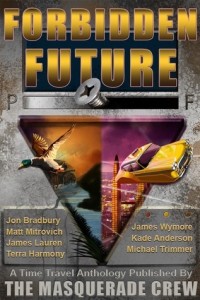This post is the next in this series, examining the details of how I managed to achieve the word count above. However, I wanted to start with a quick bit of clarification. I have, in the last twelve months, committed one million, creative, fiction-based words to paper. This equates to a bunch of novels, short stories, novellas etc. However, I want to say up front, that these are first draft manuscripts, all requiring some degree of work to complete them. It’s fair to say, based upon the way I write, some of them will need a considerable amount of work.
So, this blog is not about how to write ten perfect books in a year. It’s about the writing habit, about being in a place where you are consistently and regularly committing words to paper.
Writing every day isn’t essential. I keep telling myself that, but then, drinking tea and eating chocolate every day isn’t either, and I’ve managed to make a religion out of both. What is essential, is writing regularly. In order to make the last couple of posts, and the one to follow this, clearer, I wanted to outline ‘a week in the life’, the technicalities of how I get down the almost three thousand words a day needed to hit that elusive one million in a year.
Monday – Friday
Morning: I work full time, so I’m up at 5:50, and out the door to work by half 6. Arrive at school by seven, or ten past. School begins at 8, so I have an hour. I’ll spend half of it practicing the drums, and the other half writing. Average word count: 1000 words (the drumming, aside from being good practice, is great for waking my brain up. I believe it has value in and of itself, but could be replaced by a brisk walk, or short gym session).
Daytime: I have a half hour lunch break, and will normally find a half hour to an hour after school as well, in which to write. I’ll never use all of them, but I will try to find a good hour over the course of the entire day, in which to write. Average word count: 1000-3000 words.
Evening: I’m home by half 5, and hanging out with wifey and daughter until her bedtime (daughter, not wifey), which is around 7. From seven until nine, I’m editing, marketing, tweeting, etc. This time is flexible, and changing this year with the addition of recording podcasts in there as well. However, normally, by nine, I’ll reward myself with a little more writing. Average word count: 1000 (unless I carried away with a short story, or am fuelled by chocolate brownies, at which point it might climb to 2000)
So, a daily word count aim of three thousand minimum. On a good day, I’m there before I leave work, and on a less successful one, I can make up then numbers post-marketing time. I can normally rely on picking up a few extra here and there, say a couple of four thousand word days, which is essential come the weekend…
Saturday/Sunday:
I will start this off by saying that having a two and a half year old, and a chocolate obsession, has given me very little room for a social life. Just saying.
Morning/Afternoon: I may, if I’m feeling cheeky, wake up and grab the laptop, sneaking in a quick five hundred words before heading down for breakfast. Then it’s family stuff, be it visiting a gorgeous park, old house, coffee shop, chocolate-tasting session, or heading into London for a wander. If we drive somewhere, wifey likes to be in the pilot seat, so I can be the passenger and bang out another few hundred words, in between my monosyllabic and not-at-all-annoying contribution to the conversation. J
There are also occasions, now and then, when another mum will be up for a play date, or wifey and Pickle head for greener pastures, and I get an hour or two of dedicated writing time in, but these are few and far between, and though treasured, cannot be relied upon.
So I’ll often hit the evening with somewhere between one and two thousand words down.
Evening: This continues in the same vein as the week, with editing always the priority, mingling with marketing and actually talking to people. (electronically of course. I mean, can you imagine actually talking to people, like face to face?) And once again, when the jobs are done, I’ll reward myself, and try to hit, at the least, two and a half thousand for the day.
A quick bit of maths tells us that at three thousand per week day and two and a half thousand at the weekend equates to twenty thousand words a week.
Times that by fifty weeks, thereby giving yourself two weeks off (slacker J), and you reach one million. Easy. 🙂
So, to take away: I’m using pretty much every free moment. I do understand that I’m lucky in that, for me, writing is down time, relaxing time, so I don’t feel the loss of no longer chilling in front of a movie for an hour or two. We don’t have TV so I don’t have that distraction either. My real, away-from-the-screen downtime, comes when I go to bed, and read.
I’m exercising the self-discipline I spoke about in the last post, ensuring that I don’t have days where I just say stuff it.
And, above all, I’m enjoying myself. There are so many quotes about the tough life of the writer, about bleeding onto your keyboard, and I know for some people that’s the truth. For me, I believe that if it’s that tough, then it might be worth finding something else to do. I am in no way demeaning the efforts of those people. Nor am I criticising those who have a difficult story to tell, and so for whom the writing is an exorcism. Everything is valid, and hey, this is art, it’s supposed to be messy and challenging. But to reach the word count I do, I have to enjoy it. But that’s just me.


